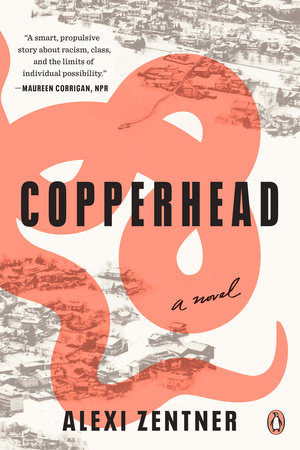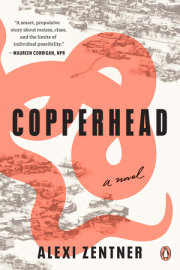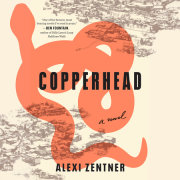T-Minus Zero
He spins the wheel hard, angry. He cannot pull away from the house fast enough. The truck lurches forward. A bee-stung horse. Snow and ice spit out from under the wheels, like a curse from a teacher’s mouth, like buckshot scattering through the air and bloodying the breast of a duck flushed from the water. The back end of the pickup, light and bouncy, skids wide and loose.
When it happens, he feels the sound of the impact as much as he hears it: like a soda can crushed by a stomped foot. But it’s two distinct sounds: the heavy thud of the boot and the gossamer crinkle of metal folding on itself.
Except the sound does not come from a soda can crushed by a foot. He knows what it is immediately. He stomps hard on the brake pedal, the truck stopping as violently as it started. He sits. The stereo is loud in the stillness, so he thumbs it off, but the windshield wipers squeak, so he turns them off too and then stops the motor.
It is too quiet. If everything were going to be okay, there would be a word. A voice. A sound. Something. Anything. But the only sound he can hear is an echo, a memory, the undertone that came with the thud and crumple of metal: the inevitable weakness of a body. He wishes it had simply been an empty soda can. But he knows it was a human being.
He gets out of the truck. He moves as slowly as he can force himself to.
He hit a deer once, more than a year ago, not long after he got the truck running, but that was different. The animal bounded out in front of him. Dumb-eyed and desperate. He barely had time to touch the brake before his fender tore open the deer’s belly. When he stopped the truck and walked back to where the deer was crumpled on the shoulder, it was still alive. A sort of miracle.
But the wrong sort of miracle. Guts spilled onto the asphalt, the slow sodium light of the streetlights washing everything down. The doe’s breath a desperate whistle of blood. Her right hind leg scraping weakly against the ground as if she was still trying to stand. He watched her like this for a minute or two and then went back to his truck. If he’d had his hunting knife with him, he could have been merciful, but there was nothing to do other than head home to hose off the blood and gore. He had to use a pair of pliers to fish out a chunk of the doe’s skin that was lodged in the creased fender.
Now he walks the long way around the front of the truck, touching the hood and then looking at the memory of the deer imprinted on the front fender; the metal still bears an ugly kiss.
When he has made his way around the truck, he looks. The body is ten, twenty feet behind the bed of the truck. He knows it is a person, but in the shadows and the false light coming from the house, it could be anything else. He wants it to be anything else. A soda can. A doe. But it is, and always will be, stubbornly, a dead body.
Minus Ten
Halloween come and gone. It’s the month of November, and it is a miracle: Jessup is still playing football. The first time in forty years that Cortaca High School has made the playoffs. Jessup is a senior. Seventeen years old and big. He was athletic even when he was small, but he’s grown into himself. Played all four years on varsity. Four years of snot and blood. Freshman, sophomore, junior year they got bounced before the playoffs, but this year they’ve only lost two games. Tonight they play Kilton Valley High. Win or go home.
His cleats click and splash on the wet cement as he jogs to the stadium. Rain started in the middle of the night, and it’s been near freezing all day; he could smell the coming snow before he even walked out of his house this morning. A wet bruise on the air. All day, during school, sitting in math or English, the familiar itch of game day making his knee bounce, Jessup kept looking out the window, waiting for the sky to decide it was time to turn from rain to snow. Now, with the sun down, the sky has decided on neither: sleet. But he can feel the temperature still dropping. The sleet will make the transition to water-heavy snow soon enough.
He’s in the middle of the pack of boys heading to the stadium. He steps off the sidewalk as they cut across the asphalt parking lot. There’s a puddle of slush that the other boys jump over or dance around, but not Jessup. He’s on a straight line. He’s not moving for nothing. Steps right in the puddle. The icy water splashes his ankle, soaks through his sock. He doesn’t care. He’ll be soaked soon enough.
Only a few days earlier it was warm. In Cortaca, mothers make sure that children pick Halloween costumes that can be worn with winter jackets, hats, and gloves. More years than not, the ghouls and goblins can see their breath in the air. This year, however, the jack-o’-lanterns spit shadows into a fall night that held a heat that seemed like it would last forever. Jessup’s sister, Jewel, is eleven. Twelve in February. Sixth grade. Old enough to almost be too old to trick-or-treat, old enough to go with just her friends, but Jessup tagged along. Drove her into town in his truck. Walked with them but stayed on the sidewalk as they sprinted up to houses. Comfortable in his T-shirt despite the end of October. Just there to keep an eye on you, he said. I’m not asking for candy, not hitting the doorbells, Jewel, so I don’t need a costume. Jewel rolling her eyes, she and her friends dressed as zombies. Zombies never go out of style, Jessup thought. He helped her with her makeup. Mom’s eyeliner, ketchup for blood. By the end of the night she was sweaty from running, hopped up on sugar, and cranky, the makeup smudged. She let Jessup have all her peanut butter cups.
It stayed warm like that all week. As if winter were just a rumor. At practice, the smell of falling leaves and cut grass mixed with sweat. It was hot enough that it felt like an echo of summer. Practice in full pads, but only light hitting. Lots of water breaks. Coach, mindful of the heat, wanted them fresh for the playoffs. Yesterday, during practice, the first hint of chill. And overnight, things changed. Summer gone and skipped past the crispness of fall. This is the cold drudgery of sleet. The temperature dropping.
Tomorrow, Jessup knows, will be winter. Tomorrow it will be snow. Tomorrow, when he goes deer hunting, the woods will be a different world from the one that exists today. It will be ice and snow and the magic of whiteness, the crunch of his boots, the quiet hush of blanketed woods while he waits for a clear shot, for a buck with a rack worth taking. Fill the freezer with good meat they can’t afford to buy. His girlfriend, Deanne, has asked to come but he’s said no. The whole point isn’t the hunt but the wait. The quiet. To be in the trees, alone. Nobody looking at him and thinking about Jessup’s brother and his stepfather in prison. It’s been four years since Ricky beat those two boys to death. Black boys. His stepfather didn’t touch anybody, but he was there, and he has a history. History is everything in a town the size of Cortaca.
Ricky has another sixteen years, at least, if things go well. His stepfather, David John Michaels, was supposed to serve five, but he’s out early. Today. Jessup’s mom drove up north this morning to bring David John back. She brought Jewel with her, since she’s David John’s kid. Jessup argued that Jewel shouldn’t miss school, but it wasn’t a real argument. The kid’s only in sixth grade, and besides, she’s smart as hell. Smarter than Jessup, even. Honor roll in her sleep. A day of school won’t make a difference. There was never a question of Jessup going along as well. Even if he didn’t have football. They’re supposed to be back by now. Sitting in the stands. His stepfather up there with Jessup’s mother and Jewel. They’ll be expecting him to go out for dinner with them after the game. He’ll do that and then head to the party and, after that, what he’s really looking forward to tonight: time with his girlfriend.
But tomorrow, tomorrow Jessup can be alone.
Minus Nine
That’s tomorrow. Tonight, it’s football. The sleet is starting to gather. It’s the kind of cold wet that makes certain kids wish they’d picked a different sport. Cortaca High School is a mix of kids. Poor whites like Jessup living outside of Cortaca on country roads, hills, and hollers, right off county highways or buried back down dirt roads, in trailers or beaten-down houses with missing windows, sweat-equity additions finished only with Tyvek, with months or years before siding goes up. Woodstoves if you’re lucky, the constant whine of a chainsaw or the thunk of a maul giving you a house warm enough to make you sweat. If you’re not lucky, propane, the house at forty-five degrees all winter, balls freezing under thin blankets, sleeping with your clothes on because nobody, not even Treman Gas, will fill your propane tank on credit. The poor blacks mostly living in Cortaca proper, up in the housing complex on East Hill, East Village—Jessup calls it the Jungle, but so do all of the blacks and the poor whites, with only the rich whites calling it by the proper name, too scared to give it its due—and the rest of the poor blacks near the downtown core, old houses once proud but now subdivided into two, four, eight apartments. Only a few of the poor blacks are out in the country like Jessup, but there are enough poor whites in town that there’s a lot of crossing of color lines there. The kids who aren’t poor are all affiliated with Cortaca University or in that orbit. Professors’ kids. Professionals’. Or just come from money. Moms available for birthday parties and carnival night during elementary school, dads who can take the day off to chaperone the middle school field trip to Hershey Park in the spring, parents who insist on honors and AP classes in high school, who know how to procure and pay for tutors when their darlings can’t handle the math or Spanish or chemistry. Jessup is in the classes dominated by rich kids and doing fine, top 10 percent of his class for grades. Not valedictorian, but within spitting distance, not bad for no tutors, for playing three sports and having a part-time job, for helping to raise his sister, top 10 percent of his class something to crow about, a ticket out of here. Beat the drum and check your numbers, teachers never quite believing he can hold his own. Not with a camo hunting jacket and what everybody knows about his brother and his stepdad. Small town, small town, small town. No way for a clean slate.
The Kilton Valley team comes from an hour away. Rich kids in a commuter town. There will be a few boys like Jessup on the team—everywhere, there are boys like him—but mostly the kids from Kilton Valley live in houses with epoxy-coated garage floors, four-bedroom homes with gas fireplaces used only for decoration, thermostats set to seventy-two in the winter, sixty-eight in the summer, cedar fences to keep the golden retriever in. Jessup has heard that the Kilton Valley team practices on an indoor field when the weather is bad. There will be boys on the Kilton Valley team who are already looking forward to getting home before the game has even started, thinking about warming up and drying off instead of the ritualized brutality Jessup loves.
As he jogs through the parking lot, the stadium lights seem too bright for the weather. He can see fat, furious dollops of ice and rain coming in streaks. The wind has kicked up, too. It’s sharp, cutting. The hit of skin on skin, helmet on skin, skin on turf is going to burn. It’s going to burn now, but worse, it’s going to burn later, under the hot showers. Around him, most of the other boys jogging to the field are wearing long sleeves under their pads. Not Jessup. Just his jersey. Bare arms. He wants the boys from Kilton Valley across the line to think about the cold. He wants them to think about what it means that Jessup isn’t hiding from the weather, what it means that it doesn’t bother him. It won’t bother him. Not during the game. He accepted, long ago, that to play football is to understand pain. Both to give and to receive. It is one of the reasons he is good at what he does. Because the secret to being a linebacker is not just the willingness to punish and to accept punishment alike, but to revel in it.
Copyright © 2019 by Alexi Zentner. All rights reserved. No part of this excerpt may be reproduced or reprinted without permission in writing from the publisher.










